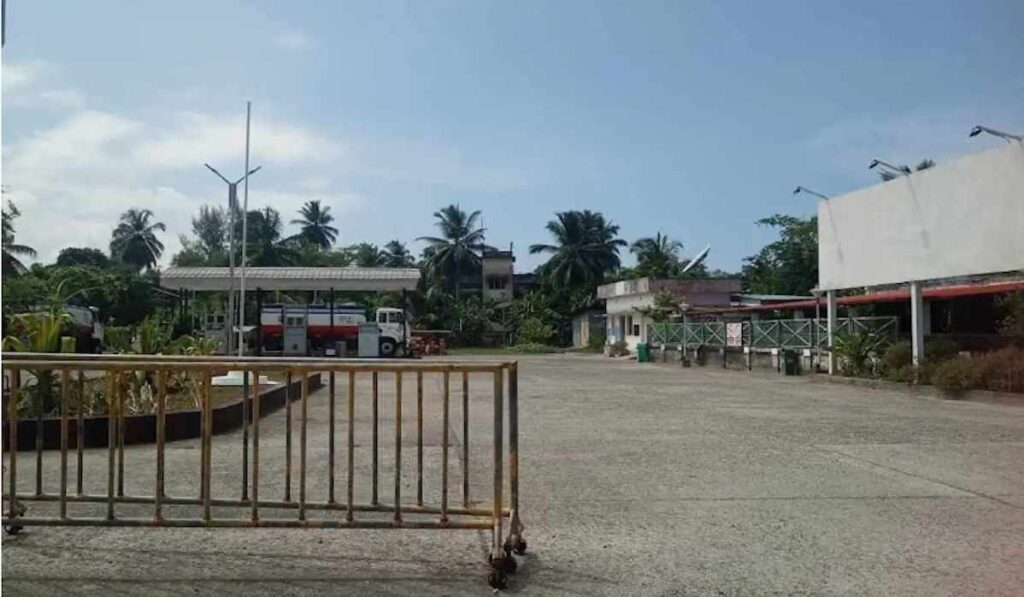Tarun Karthick
Sri Vijaya Puram, 20 September 2024
Great Nicobar Island, the southernmost frontier of India and home to a diverse community of ex-servicemen, fishermen settlers, permanent residents, tribal populations, and government employees, is once again grappling with a petrol crisis. This island with an estimated population of around 6,000, has been left struggling as its lone petrol station, operated by the Andaman and Nicobar Islands Integrated Development Corporation Limited (ANIIDCO), has drastically limited petrol availability.
On 19th September, the island’s only petrol station ceased sales to the general public after one of its dispensers failed due to low fuel levels in the tank. While the other dispenser remains operational, which can retrieve fuel from lower tank levels, the stock must now be judiciously distributed between essential government services and residents facing daily fuel needs.
The crisis comes just months after the last fuel shortage hit the island in April 2024, immediately following the Lok Sabha elections. At that time, residents and officials had already raised concerns about the island’s vulnerability to fuel disruptions, but no long-term solutions have been put in place since.
Currently, the fuel station holds 2,461 litres of petrol, but due to the limitations of the dispenser, only a fraction of this around 800+ litres can be accessed. The remaining stock must be carefully rationed to ensure emergency services continue uninterrupted, while residents worry about their ability to meet daily needs and respond to potential emergencies.
The next consignment of petrol is expected to arrive in the coming days aboard the M.V. Chuglam, which, as of the last reports, is stationed at Car Nicobar awaiting favourable weather conditions to proceed to Great Nicobar. However, this reliance on sporadic deliveries leaves residents in constant uncertainty about fuel availability.
Many locals are now questioning why authorities have failed to maintain an adequate buffer stock of fuel on the island. The idea of installing additional storage tanks and obtaining the necessary clearances has been discussed, but no concrete steps have been taken. For the people of Great Nicobar, the recurring nature of these fuel shortages has led to growing frustration and demands for a permanent solution.
“When will the authorities learn? We cannot continue to live under the constant fear of running out of essential supplies. It’s high time they invest in infrastructure that ensures we’re not left without petrol for days,” one resident remarked.
As the island waits for the next shipment, the question remains: how long will the authorities take to address this pressing issue and provide a lasting solution to the recurring petrol crises on Great Nicobar?

